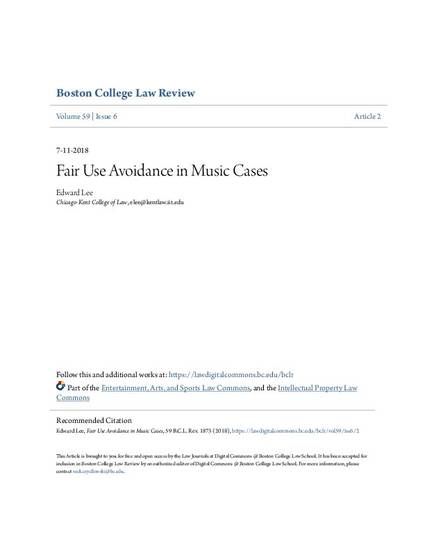
Article
Fair Use Avoidance in Music Cases
Boston College Law Review
(2017)
Abstract
This Article provides the first empirical study of fair use in cases involving musical works. The major finding of the study is surprising: despite the relatively high number of music cases decided under the 1976 Copyright Act, no decisions have recognized non-parody fair use of a musical work to create another musical work, except for a 2017 decision involving the copying of a narration that itself contained no music (and therefore might not even constitute a musical work). Thus far, no decision has held that copying musical notes or elements is fair use. Moreover, very few music cases have even considered fair use. This Article attempts to explain this fair use avoidance and to evaluate its costs and benefits. Whether the lack of a clear precedent recognizing music fair use has harmed the creation of music is inconclusive. A potential problem of “copyright clutter” may arise, however, from the buildup of copyrights to older, unutilized, and underutilized musical works. This copyright clutter may subject short combinations of notes contained in older songs to copyright assertions, particularly after the U.S. Supreme Court’s rejection of laches as a defense to copyright infringement. Such a prospect of copyright clutter makes the need for a clear fair use precedent for musical works more pressing.
Keywords
- law,
- entertainment,
- arts,
- law commons,
- intellectual property law,
- fair use,
- musical works and the law
Disciplines
Publication Date
July 11, 2017
Citation Information
Edward Lee. "Fair Use Avoidance in Music Cases" Boston College Law Review Vol. 59 Iss. 6 (2017) p. 1873 - 1931 ISSN: 0161-6587 Available at: http://works.bepress.com/edward_lee1/33/
